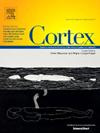极端的群体内和群体外观点在神经振荡水平上反直觉地影响群体间极化
IF 3.2
2区 心理学
Q1 BEHAVIORAL SCIENCES
引用次数: 0
摘要
当为应对最近的全球大流行而实施疫苗接种时,疫苗支持者和反对者之间发生了情感两极分化的一个有力例子。在这项社会神经科学研究中,我们使用脑磁图扫描了121名疫苗支持者,以评估三种极化水平:显性、隐性和神经——然后测试是否将人们暴露于极端的群体内观点(遵循悖论思维原则)或极端的群体外观点可以调节接种疫苗和未接种疫苗的个体之间的情感极化水平。我们表明,群体间极化的神经代理,表达为晚期前额叶β节律抑制,可以检测情感极化的微妙变化。更具体地说,我们发现将疫苗支持者暴露于极端的群体内(即支持接种疫苗)观点会导致这种情感两极分化的神经代理减少。相反,接触极端的外群体(即反疫苗接种)叙述会增加两极分化,这反过来又预示着几乎一年后对疫苗反对者的积极影响会减少。总之,研究结果表明,虽然让人们接触到相反的观点(即极端的外群体观点)来改变他们的观点似乎是直觉,但这种方法可能会产生反弹,反而会加剧两极分化。然而,使用更微妙的方法,如悖论思维干预(即极端的群体内观点)来改变态度可以产生预期的效果,并减少群体间的两极分化。本文章由计算机程序翻译,如有差异,请以英文原文为准。
Extreme ingroup and outgroup perspectives counter-intuitively impact intergroup polarisation at the level of neural oscillations
A powerful example of affective polarisation occurred between vaccine-supporters and -opposers when vaccinations were implemented to counter the recent global pandemic. In this social neuroscience study, we scanned 121 vaccine-supporters using magnetoencephalography to evaluate three levels of polarisation: explicit, implicit, and neural — and then to test whether exposing people to extreme ingroup perspectives (following the paradoxical thinking principles) or extreme outgroup perspectives can modulate those levels of affective polarisation between vaccinated and unvaccinated individuals. We show that a neural proxy for intergroup polarisation, expressed as late prefrontal beta rhythm suppression, can detect subtle changes in affective polarisation. More specifically, we find that exposing vaccine-supporters to extreme ingroup (i.e., pro-vaccination) viewpoints leads to a decrease in this neural proxy of affective polarisation. Conversely, exposure to extreme outgroup (i.e., anti-vaccination) narratives increases polarisation, which in turn predicts a decrease in positive affect towards vaccine opposers almost one year later. Altogether, the results show that although it may seem intuitive to expose people to counter-arguments (i.e., extreme outgroup perspectives) to change their opinions, such an approach can backlash and increase polarisation instead. However, using subtler methods such as the paradoxical thinking intervention (i.e., extreme ingroup perspectives) for attitude change can have the desired effects and reduce intergroup polarisation.
求助全文
通过发布文献求助,成功后即可免费获取论文全文。
去求助
来源期刊

Cortex
医学-行为科学
CiteScore
7.00
自引率
5.60%
发文量
250
审稿时长
74 days
期刊介绍:
CORTEX is an international journal devoted to the study of cognition and of the relationship between the nervous system and mental processes, particularly as these are reflected in the behaviour of patients with acquired brain lesions, normal volunteers, children with typical and atypical development, and in the activation of brain regions and systems as recorded by functional neuroimaging techniques. It was founded in 1964 by Ennio De Renzi.
 求助内容:
求助内容: 应助结果提醒方式:
应助结果提醒方式:


